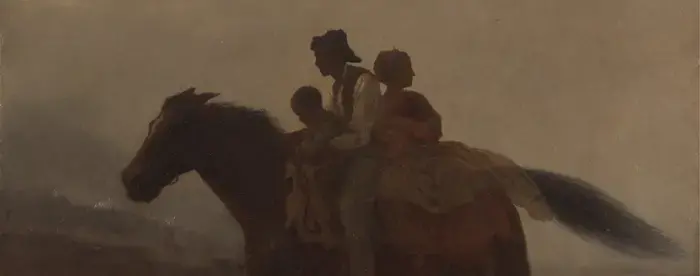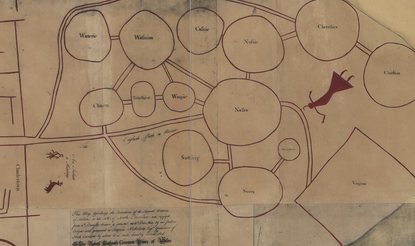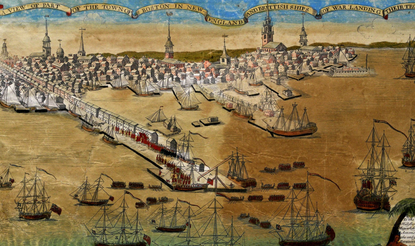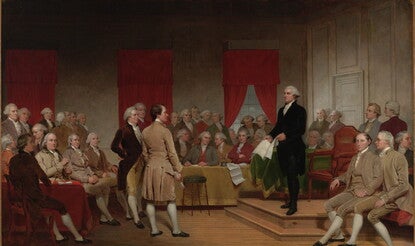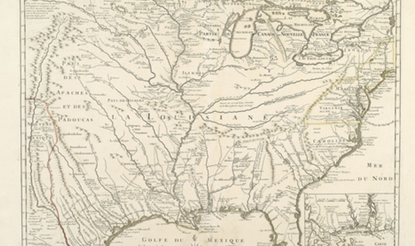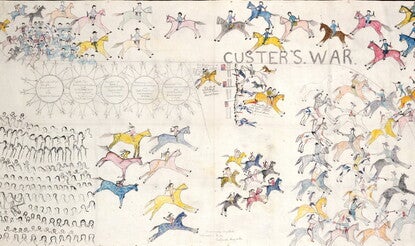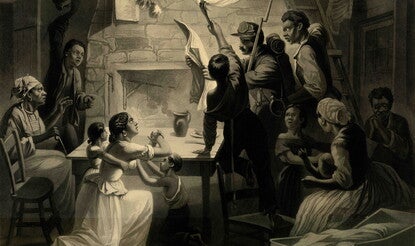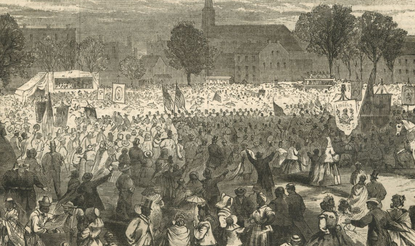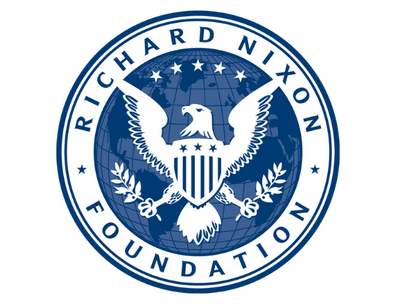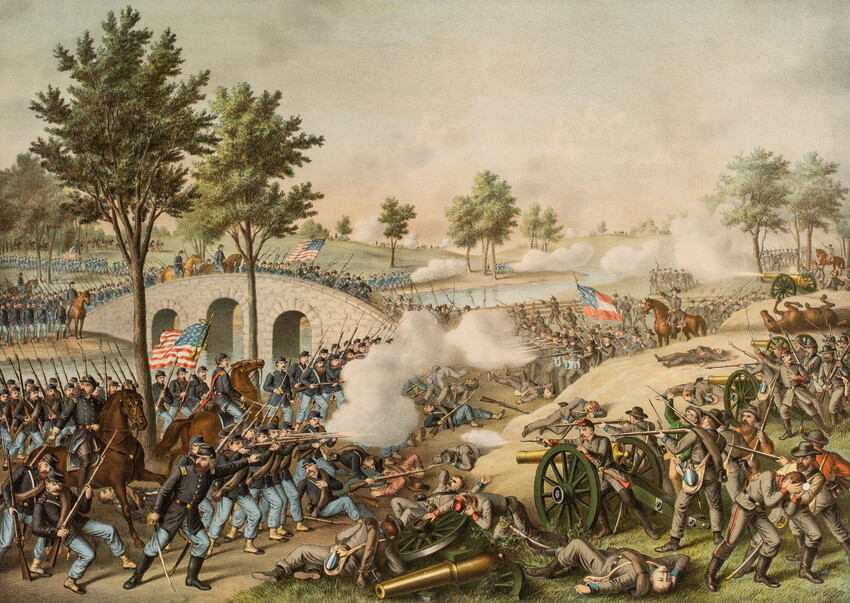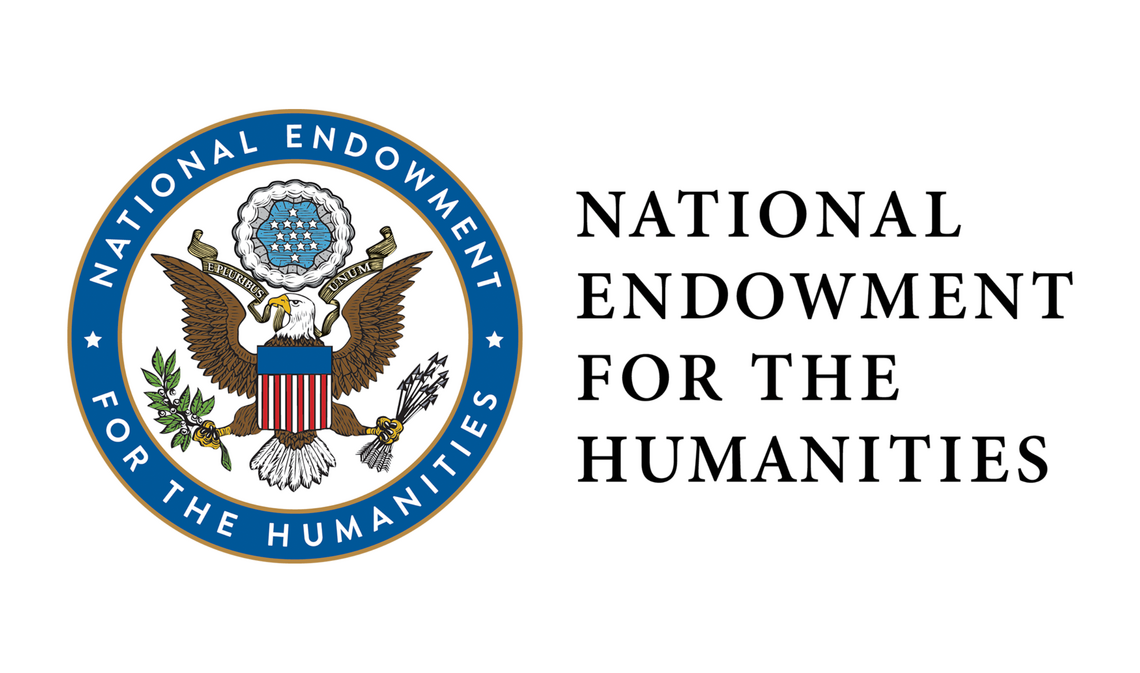This curated suite of resources for elementary school educators will help expand your knowledge of important topic areas in the elementary curriculum. You will find lesson plans, student activity sheets, videos for students, interactive maps and timelines, recorded lectures, and free professional development courses.
Image: A detail from A Ride for Liberty—The Fugitive Slaves, a painting by Eastman Johnson, ca. 1862. (Brooklyn Museum)
